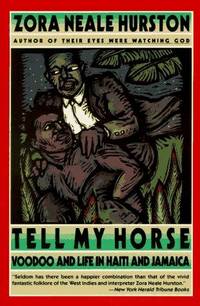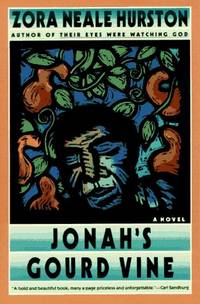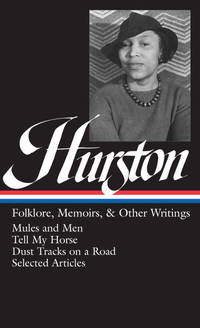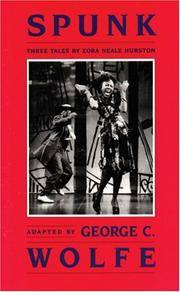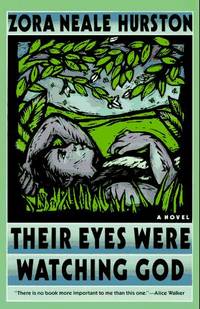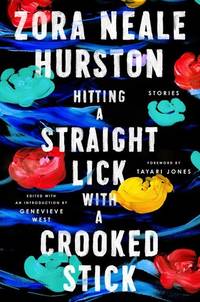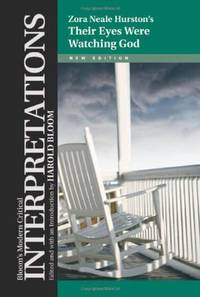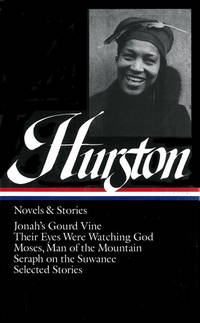Zora Neale Hurston was born January 7th, 1891 in Notasulga Alabama, a tiny town on the eastern side of Alabama. Her family moved to Eatonville Florida in 1894. In 1904 Hurston's mother died, and after her father remarried she was sent to boarding school, although after her family failed to pay tuition she was expelled. After working as a maid for a lead singer in the Gilbert & Sullivan Theatrical company, she began attending Morgan College in 1917, which was the high school division of Morgan State University, a historically black college in Baltimore, Maryland. At this time, apparently to qualify for a free high-school education (as well, perhaps to reflect her literary birth), the 26-year-old Hurston began claiming 1901 as her year of birth. She graduated from the high school of Morgan State University in 1918 . She then attended Howard University where she earned her associates degree in 1920. Her short story “Spunk” was chosen for inclusion the “The New Negro” an anthology edited by Alaine Locke that is considered by some to be the definitive text of the Harlem Renaissance.
In 1925 she was offered a scholarship to Barnard College in New York City, where she was the college's only black student. She earned her BA in anthropology in 1928 at the age of 37. She then spent two years studying anthropology at Columbia University. At this time she also became part of the Harlem Renaissance, becoming friends with Langston Hughes and Countee Cullen among others. During this time she had some literary successes, including the short story “Sweat” (1926) and the autobiographical essay concerning her childhood in all-black town of Eatonville Florida, “How it Feels to be Colored Me.” (1928)
In 1934 Hurston published her first novel, Jonah's Goard Vine. In 1935 she published Of
Mules and Men, a collection of African-American folklore she put together after returning to Florida in the 1920s.
Hurston received funding from Guggenheim foundation for travels and studies in anthropology ethnography, and she traveled in 1936 and 1937 to Jamaica and Haiti for research. As a result of this work she published, Tell My Horse: Voodoo and Life in Jamaica and Haiti (1938). It was during this time also that she wrote her best known work,
Their Eyes Were Watching God (1937).
In 1938, Hurston worked for the Federal Writer's project (FWP). Hired for her experience as a writer and folklorist she gathered information to add to Florida's historical and cultural collection. Her work during this time was collected and published by W.W. Norton & Co. in 1999 as
Go Gator and Muddy the Water.
In 1942 she published Dust Tracks on the Road, an autobiography that was well received by critics.
In 1952 she received an assignment from the Pittsburgh Courier to cover a murder trial in Florida. The trial involved Ruby McCullum, a weathly married black women convicted of killing a white doctor and state senator. Although McCullum stated the doctor had repeatedly raped her and forced her to have his children she was not allowed to testify for her defense, and she was convicted of the murder and sentenced to death by electric chair, although her case was appealed and she was later released to a mental institution after being deemed mentally incompetent to stand trial.
Huston struggled to make a living during her final years and in 1959 suffered a stroke. She died in Fort Piece, Florida, at St. Lucie County Welfare Home January 28th, 1960, and was buried in an unmarked grave. Her novels went relatively unrecognized by the literary world for decades, but interest revived after author Alice Walker published "In Search of Zora Neale Hurston" in the March 1975 issue of Ms. Magazine. In 1973, Alice Walker had a headstone placed at her gravesite with this epitaph: “Zora Neale Hurston: A Genius of the South.”
Hurston's manuscript
Every Tongue Got To Confess (2001), a collection of folktales gathered in the 1920s, was published posthumously after being discovered in the Smithsonian archives.
May 8th, 2018 Harper Collins is set to release a new book based on interviews done by Hurston in the 1920s and 1930s.
Barracoon tells the story of Cudjo Lewis, who was kidnapped from Africa and brought to America as a slave in 1860, almost fifty years after the United States made international slave trade illegal. Hurston first met Lewis in Plateau, Alabama in 1927, then returned in 1931 and stayed for weeks interviewing him, creating this account of the last recorded person to have been stolen from Africa, as well as survived the horrors of the middle passage and slavery in America prior to the Civil War.











